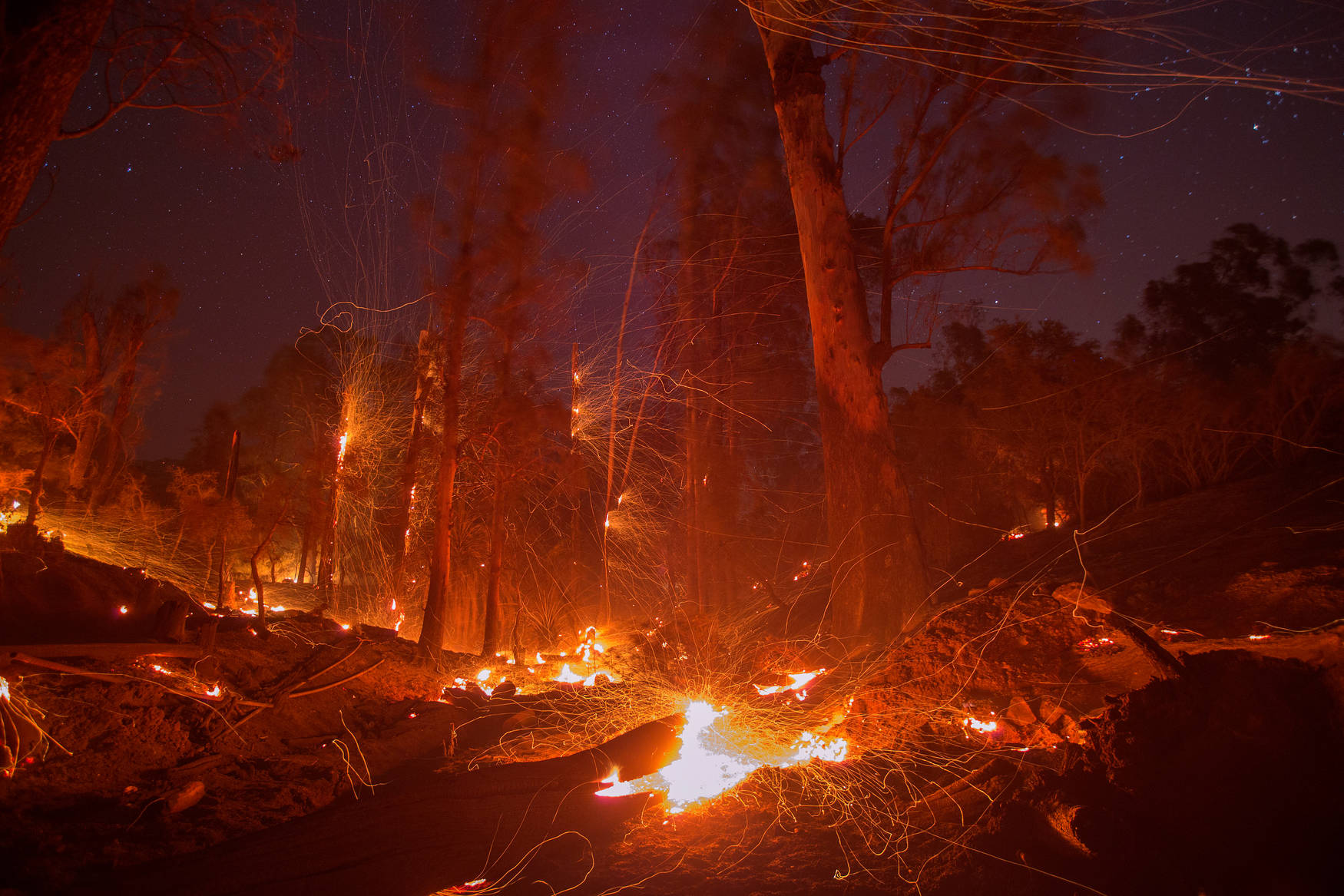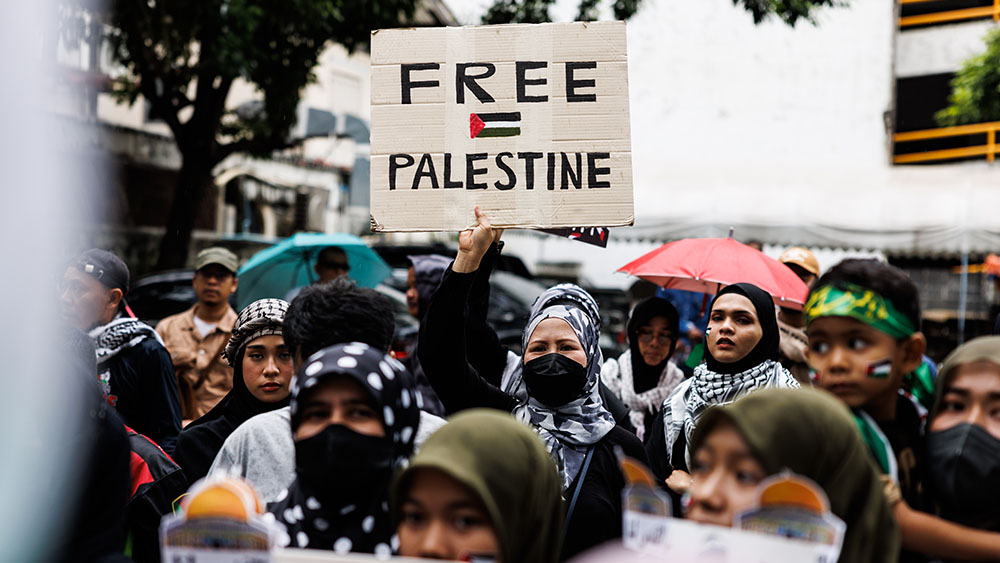Our Wildfire Evacuation, Part 3
by SoCal9mm, Survival Blog:

OPPORTUNITIES FOR IMPROVEMENT:
- Radios – both Motorola radios AND handheld ham radios were left behind that would have helped us stay in contact between our 2 cars. Cell phones worked (thankfully), but I noticed bad connections nearly every call.
- NOTE: if we had a better means of communication, W. could have taken her car to the other neighborhood exit to see if traffic was flowing better and reported back to me to either follow her or stay where I was (oh well, hindsight and all that).
- Scanners, or even scanner apps – having access to information from the FD might have given us information a bit sooner.
- Extra clothes – it sucks to have only 1 pair of pants to wear continuously for several days when they’re full of smoke and you’re sleeping in them (yuck).
- We needed backup pet items (food bowls, water bowl, litter box, and litter) all in 1 bag and added to the checklist (a pet-BOB, if you will).
- We have monthly poker nights and our small “bank” doubles as part of our emergency cash “stash”. It got left behind the first night (grabbed later) – needed to be added to checklist.
- Power cords – we had micro-USB cords for the cell phones, but my laptop power cord was missed.
TUESDAY, 12/05/17
~6:00am
The night finally ended but the winds were still howling, and we couldn’t find any good information on where the fire was or where it might be heading. We went to the County Gov’t Center to try to find some answers (W knows some people there).
~6:30am
In the government center parking lot, we ran into a neighbor whose car was running on fumes – there was still no power in the area so no gas stations were operating. I napped for a bit in the parking lot with the pets while W and our neighbor went inside. The only current information that seemed to be available was what KTLA news (a local station from L.A.) was reporting.
We turned to social media – Agency websites and Facebook pages were not really helpful. ReadyVenturaCounty.org (the County’s emergency website) had almost no useful information. This became a very sore subject for us as time went on – virtually no information was coming from our local officials. I know the firefighters, law enforcement, and utilities crews were doing what they could (much, much appreciated), but the Public Information Officers for most agencies were giving out very little in the way of immediately useful information.
Twitter, however, was awesome! There was a guy on Twitter (@VCScanner) who was listening to the local police and fire department scanners and transcribing the [gist of] radio calls into tweets. Genius! I got more immediately-useful information from his tweets than I did from all other sources combined. Also, because of the written format, I found it easier to follow than using a scanner app to listen to the audio feed. I know what you’re thinking, “Twitter?” Yes, I know – but it worked really well here.
Afternoon
We went back to where we were staying and watched the house of a good friend and neighbor burn down on live television. Wow, that was unbelievable. Fatigue caught up with us and we napped here and there.
Evening
It was about sunset on Tuesday that we got a text from a neighbor (who infiltrated the evacuation zone) with a picture showing that our house was still standing.
LESSONS LEARNED OR THINGS THAT WORKED OK:
- Lengthy timeframes – it took us exactly 1 month to the day to be able to return to our home. At this time we had no idea that it would be that long – I mean our house is right there, right? More on this later.
- It’s hard to prepare for such an unknown and potentially lengthy timeframe, so “cash or credit” may be the only way to deal with a short-term lack of clothing, toiletries, lodging, food, etc. NOTE: SAVE YOUR RECEIPTS.
- I’ll talk about laundry, lodging, and other super-fun topics in a bit…
- Information / Communication
- Some social media did a great job allowing us to stay up to date with the changing conditions (fortunately, cell networks were still up and running).
- Twitter – I follow ~20 different public safety agencies, and use Twitter ONLY for gathering emergency information. This worked well during this event – thanks to VCScanner (and others) and the fact that network infrastructure remained viable.
- Texting with family and friends (both inside and outside the area) was a WAY better method for us to communicate (as opposed to phone calls).
- Keep your car fueled.
- Our neighbor had no gas and couldn’t even move her car until the gas stations opened (late morning).
- Our car and truck each had >½ of a tank – but we still made it a priority to go down and fill both when power came back on, Tuesday noonish.
- Talk with friends / family.
- Stay in contact as much as you can. We had people calling and texting like crazy all day and we couldn’t keep up with everyone checking in to see how we were doing. As mentioned before, texting was much less intrusive and allowed us to reply when we had a little breathing room – not that we didn’t appreciate the calls; the outpouring of support from our friends was humbling at times.
OPPORTUNITIES FOR IMPROVEMENT:
- Sleep – we were pretty whacked-out due to stress and lack of sleep. We were (a little too) focused on following the news and didn’t sleep as much as we probably should have. We should have tried to get sleep whenever we could.
- Radios – if we’d had our ham radios, we might have had better access to information.
Wednesday, 12/06/17
~6:45am
W. finds some news source (Nextdoor or VC Alert or a text from a neighbor maybe?) that says residents are being allowed into the neighborhood – so we go! WE GO NOW!!! We unhooked the trailer, drove the truck up to the roadblock, showed our ID, and we were in. You probably saw the pictures on the news, the devastation was just everywhere.
We got very lucky here – this turned out to be the only window of time where they allowed residents to return with their vehicles. By 8:00 or 8:30, they were only allowing residents to walk in to the neighborhoods, no vehicles.
~7:15am
The house had no electricity, no gas, and very low water pressure (also, there was a boil-water notice for a few days that week in the city). Everything inside smelled like smoke and there was a layer of ash everywhere (even though all the windows were closed). But, hey, we’ve got a house!
On the drive to the house, we were quickly making a list of things to do there – I don’t remember everything that was on it, but I do know that it included the following items:
- Move the flammable materials (especially propane tanks for the BBQ and extra diesel fuel) away from the house or take it with us.
- Take the Pew-Pew – I was VERY worried that some dirtbag would break in, take my gun, and commit a crime or shoot some innocent person with it. I have a decent gun safe, but a determined dirtbag can get into just about any safe if given enough time. And time was something they had plenty of in this situation: no power meant that security systems and lights were all offline, most of the people were evacuated so they knew most of the houses were empty, and the police were stretched very thin with all the extra areas they now had to patrol. Looting was an issue in some areas, but we were lucky and didn’t get hit. I really hate dirtbags.
- Walk thru every single room and photograph each wall, cabinet, cupboard, closet, etc. In case the fire comes back, we would at least have a current record of what was in the house.
- Empty the already-warming fridge and freezer – pack up all the food in heavy duty trash bags and take it with us for disposal. NOTE: we should have photographed this process too, most insurers will cover food loss in events like these. We were lucky, our insurance allowed our claim even without photographic evidence.
- Gather more clothes, toiletries, etc. – enough for 3-4 more days. Hey, my Sonicare toothbrush – yay.
- Take any extra cash – I mentioned before that we had a small “bank” of $1s and $5s that we use for our monthly poker nights with friends; better to have it rather than let it burn up (or have it looted by some dirtbag).
- Hose down plants / hillside – water pressure was very low, so the sprinklers were not working. The garden hose, although weak, worked well enough to do the patio plants, but couldn’t cover the hillside. I was able to water down the wooden deck in the backyard.
~10:00am
So we were taking care of most of our list and we were checking on some neighbors’ houses when we heard, “Anybody have a fire extinguisher, FIRE!” I grabbed our extinguisher and ran over to a bush that was fully engulfed on the far side of our next-door neighbor’s house. Our neighbor had his hose already on it and the FD came up to put it out. It got me thinking, “man, we’re still sitting on a powder keg”.
It was somewhere about this time that we found a still smoldering / flaming wooden planter right next to our house, so we doused it like crazy and moved it well away. I also decided to hose down the scorched palm tree in the front yard, just to make sure it didn’t have any embers buried inside of it.
Loading...



